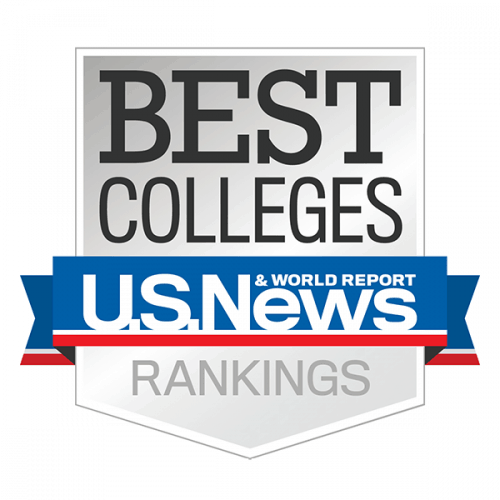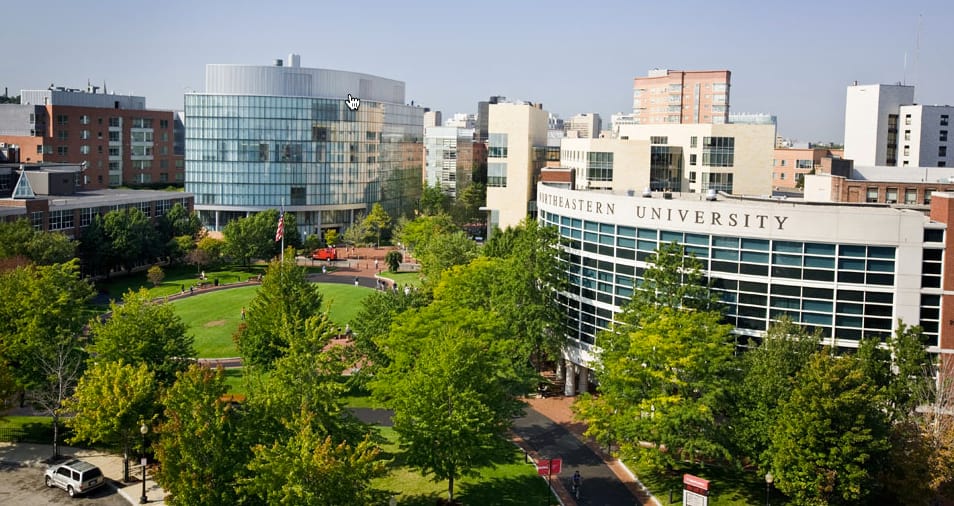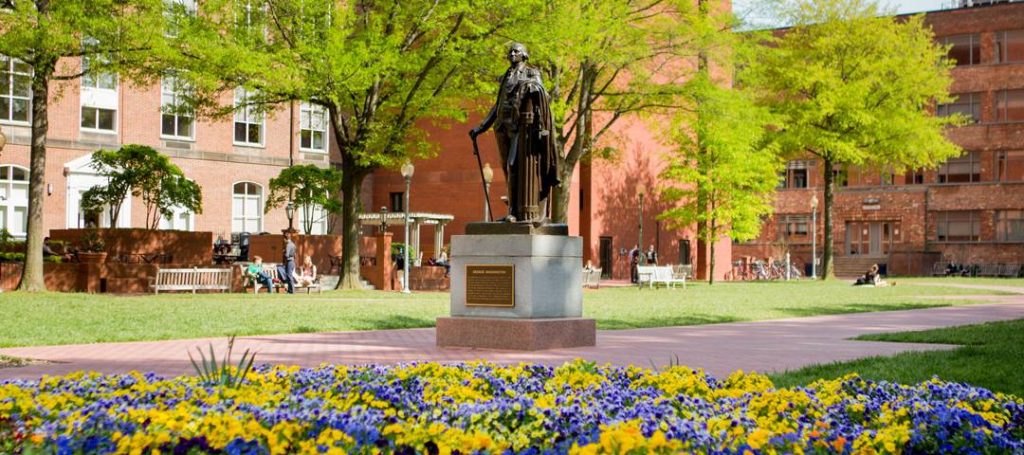
Most college-bound teenagers and their parents never look at U.S. News and World Report’s college rankings, which is actually a healthy thing.
U.S. News’ college rankings, are much more likely to be a preoccupation of teenagers and parents in affluent households. I believe the fixation with the rankings is a major reason for the tremendous stress and mental health issues that too many of these students experience.
It’s my hope that students and parents won’t put so much faith in them when they know more about these destructive college rankings work.
15 things to know about US. News & World Report’s College Rankings
1. U.S. News relies on rankings to stay alive.
U.S. News’ college rankings wields tremendous power even though the rankings giant is a shell of its former self. Many years ago, U.S. News couldn’t attract enough subscribers to keep the magazine going.
To survive, U.S. News issues junk rankings for all sorts of stuff including such things as hospitals, new and used cars, diets, nursing homes, high schools, law firms, jobs, real estate agents, vacations, cruises and health insurers! It’s all garbage. 
2. U.S. News’ college rankings have encouraged institutional bad behavior.
U.S. News’ college ranking system is one of the chief culprits for escalating college prices and encouraging harmful admission practices.
Millions of students have been adversely impacted by the rankings competition because of the actions of the audience that cares most deeply about the numbers – college presidents and their boards of trustees, and by extension, their admission offices.
For these folks, US News has provided them with an easy (though deeply flawed) scorecard to measure how their institutions are faring and they are distraught if their school’s ranking stalls out, or worse, drops.
3. The college rankings formula can be gamed.
Plenty of universities have figured out how to crack the code to climb up the rankings ladder.
Northeastern University is one of the schools that focused single-mindedly on improving their rankings. Two decades ago, Northeastern was considered an third-tier, blue-collar commuter school stuck with an unattractive campus.
But then a new college president took over and focused single mindedly on saving the institution by doing whatever was possible to boost its U.S. News ranking.
Six years ago, Boston Magazine explored this Cinderella tale and quoted the Northeastern president as saying, “There’s no question that the system invites gaming.”
U.S. News ranks Northeastern, which is now an extremely popular destination, as No. 40 in the coveted national university category. It is tied with such institutions as Tulane and College of William and Mary. A couple of decades ago it was ranked No. 162 and it was rare for anyone outside of Boston to have heard of it.
George Washington University was another struggling commuter school that successfully cracked the U.S. News college rankings code and began 
Here is an article from Washington Monthly about how ranking manipulation catapulted GWU in the rankings. It’s now ranked No. 70 in the national university category.
4. Popularity is a big ratings factor.
A school’s reputation among the right people will significantly impact it’s U.S. News ranking.
In annual surveys, three administrators from the offices of president, provost and admission at each school in the national university category, for instance, must assess what they think about all their peers on a one-to-five grading scale. (One is marginal and five is distinguished.)
Here, however, is the dilemma:
What do administrators at UCLA, Johns Hopkins, University of Tulsa and Kansas State know about what’s going on at Brandeis, Case Western Reserve, Virginia Tech and University of Missouri (my alma mater), much less 300 other schools in the national university category?
Or how about schools in the liberal arts college category that have far less name recognition. What do administrators at my son and daughter’s alma mater – Beloit and Juniata colleges – know about the academic quality at say, Pitzer, Hendrix, Spelman and Middlebury colleges?
Rating peers on one-to-five scale is an absurd exercise that administrators should refuse to do and most actually decline to participate in this rankings beauty contest exercise. According to U.S. News, only 43% of academics responded to the reputational surveys distributed in 2018-2019.
5. U.S. News measures six-year graduation rates.
I don’t know any parents who thinks that graduating from college in six years is acceptable. U.S. News, however, uses six-year rates when evaluating schools. Another head scratcher.
6. Rankings encourage colleges to favor affluent students.
US News awards schools which generate higher test scores and grade point averages for their incoming freshmen class, which favors rich students.
This focus on selectivity has been a boon for affluent high school students, who tend to enjoy better academic profiles. These teens can afford expensive test-prep courses and are more likely to have attended schools with stronger academic offerings. There is a strong positive correlation between standardized test scores and family income.
Attracting richer students allows the school to boost their sticker prices without alienating too many potential customers.
7. Rankings encourage the use of merit scholarships.
Before the rankings became so prominent, high-income students typically had to pay full price for college. The majority of grants were reserved for middle-class and low-income students, who required financial help.
But with the rankings premium linked to top students, private and public institutions began offering merit scholarships to entice smart, wealthy students to their campuses rather than to their competitors.
How do you cough up the money for these deal sweeteners?
One way is to raise the tuition price to generate extra revenue for these scholarships and another way is to reduce the financial aid to needy students. Low and middle-income students are the big losers in the rankings game.
8. Elite schools are the exception to merit awards.
The only schools that don’t offer merit scholarships to rich students are the institutions that are perched at the top of U.S. News’ college rankings.
Wealthy parents whose children get into the top-rated schools in U.S. News’ national university and liberal arts colleges categories, such as Stanford, Harvard, Princeton and Williams, will pay roughly $300,000 for a SINGLE bachelor’s degree, but they won’t do it for other schools.
The most elite schools boast that they reserve their aid to the families who need financial help to attend college, but most of these institutions offer admissions to a shamefully low percentage of needy students. The most elite schools primarily educate wealthy students.
9. Rankings encourage admission tricks.
For instance, US News’ algorithm favors schools that spurn more students. To increase their rejection rates, schools will court students through marketing materials and social media that they have no intention of accepting.
Here’s another trick: some institutions make it easy for students to apply via streamlined online applications, which are referred to in the industry as “fast apps.” Schools use this strategy to increase the size of their student body, as well as bump up their rejection rates.
10. Rankings don’t measure what’s important.
One of the perverse aspects about the rankings is that turning out thoughtful, articulate young men and women, who can write cogently and think critically won’t budge a school’s ranking up even one spot. Curiously enough, U.S. News doesn’t even attempt to measure the type of learning going on at schools.
In reality, the methodology fueling the rankings are a collection of subjective measurements that students and families are supposed to rely upon to pinpoint the schools doing the best job of educating undergraduates. U.S. News relies on proxies for educational quality, but these proxies are dubious at best.
11. Rankings encourage cheating.
Rankings have become such a high-stakes game that some schools send false data or have acted unethically. And I suspect that most of the schools that are manipulating their figures have never been caught. Those that have been outed in past years include Claremont McKenna, U.S. Naval Academy, Baylor University, Emory University.
12. Rankings encourage debt.
This is incredibly infuriating – the rankings giant ignores how much college debt students are incurring. It’s a terrible omission that is certainly one reason why college tuition continues to defy inflation.
US News rewards schools that spend freely and the rankings juggernaut doesn’t care if that requires universities to boost their prices and graduate students with staggering debt.
Here is an old post -that I wrote about this phenomenon for my previous college blog at CBS Moneywatch:
Blaming College Rankings for Runaway College Costs
Malcolm Gladwell wrote a fascinating article for The New Yorker in 2011 on college rankings in which he talked about the incentive of institutions to turn their campuses into lavish palaces and stick the bill with the kids:
13. Don’t believe the numbers.
You should not believe that a college ranked No. 1 or 19th or 73rd is better than peers ranked 6th or 42nd or 95th best. I’ve seen too many parents make terrible financial sacrifices to send their kids to rankings darlings when it was completely unnecessary.
The school that you attend isn’t as important as what a student does wherever he or she lands. I wrote a post about my daughter six years ago that illustrates this fact.
14. Use U.S. News as a tip sheet.
Rather than focus on the numbers, consider using U.S. News rankings to generate ideas. This will be particularly helpful in searching for promising schools beyond the national university category, which includes nearly all of the nation’s best-known universities.
Try looking for ideas in U.S. News’ regional universities and liberal arts college categories and then start researching them.
15. U.S. News is here to stay.
A few years ago, Brian Kelly, the U.S. News editor made this promise during an press interview: “You can love us or hate us, but we’re not going away.”
Sadly, I think that is true, but using rankings responsibly can lessen the tremendous emotional and financial damage that they cause.


I do not believe we need college rankings at all. I agree with you that they are garbage and only tell you what the designer of the ranking wants you to see. They control the inputs, thus the outputs. They can decide the attributes and weights of the attributes that are important in order to get the lists to come out however they want. Back in the dark ages of the late seventies when I applied to college, we had college guides such as Fiske, and they gave us great information that was actually useful. We used those guides as well as talking to friends, neighbors, potential employers, guidance counselors, et cetera. We usually visited just a few colleges. We chose a college based on how much we liked it when we visited, information we gathered from the guides and talking to others, and whether or not our test scores and GPAs matched the middle range of current students. We did not stress a lot. We had examples of people in our lives who did just fine and even excelled going to a wide range of universities, some prestigious and some not. I have a friend whose father was President of MIT a few decades ago, and he graduated from West Virginia University. He showed through demonstrating his skills and leadership that he was worthy of leading one of the most famous private universities in the world even if he did attend West Virginia and not an elite private school. His case is just one of many examples of how it is the person and what s/he does with her/his knowledge that matters — not the ranking of the college s/he attended. This is still true today, although convincing parents and students in affluent areas of the truth in this is a tough sell. I try, but many people do not want to hear it. In my workplace, I see Data Scientists from New Mexico Tech working alongside people from Penn State, Carnegie Melon, Vanderbilt, Yale, and Virginia Tech. It is simply not necessary to go into debt for Vanderbilt (just as one example) if you are a Pennsylvania resident when you can land the same job having gone to Penn State for in-state tuition cost. If Vanderbilt offers you a full ride, then by all means go there. But people should not be going into debt for the sake of a school’s reputation, particularly not at the undergraduate level. My daughter attended James Madison University (JMU), a large, undergraduate focused state university in Virginia that happens to have a top-ranked Geographic Information Science (GIS) program. She got interested in pursuing GIS due to taking it as a dual enrollment class in high school. The program at JMU is small, undergraduate focused, and project oriented, and does not use any teaching assistants. The classes are small and taught by professors who act as mentors and have connections in the field, and most of the classes have under 50 students in them. They take a mix of traditional liberal arts classes that require heavy doses of writing along with highly technical courses. She did her homework when she was college shopping and discovered this, and she chose to ignore all the rankings hype about UVA and W&M in our state. She went on to land an excellent job with a government agency through which she travels overseas, receives excellent career development opportunities, has great benefits, and manages interesting projects that support policymakers and military commanders. She got this excellent job in part due to connections she made with professors at JMU and mentoring and guidance she received directly from them. Her agency also hires people from some Ivies and other elite universities. Her agency is now sponsoring her with a full ride graduate sabbatical all while she continues to receive her full salary, to get her masters degree in GIS at Johns Hopkins University. She has managed to remain debt-free and has just as bright a future and exciting a career as her friends who attended so-called elite private universities or public ivies. She found like-minded peers in her college even though its entering freshmen class does not have as high standardized scores as more prestigious colleges, and managed to be plenty intellectually stimulated and had excellent interaction with professors in her department. It prepared her well enough that she has been accepted into a competitive Johns Hopkins graduate program. It is absolutely possible to have this at an undergraduate school that is not in the top 50 or even 100 in US News’ questionable rankings. College is what you make of it, as I have seen in my career at a competitive employer where I am a hiring advisor. We look for candidates who have demonstrated they have had meaningful experiences both inside and outside the classroom and have taken responsibility for their learning both in school and over breaks. In other words, we hire based on what the candidates can show us they have done with their time and the experiences they have had, as well as how they do on our entrance tests and interviews, rather than limiting hiring to people from certain colleges. As a result, we have a lot of diversity not only in the demographic backgrounds of the employees, but in where they attended college, including colleges of all types, sizes, and levels of selectivity.
I’m digging through lots of information and mis-information right now. I have to recommend reading this title for one portion of your college admission education.
Where You Go Is Not Who You’ll Be: An Antidote to the College Admissions Mania
By: Frank Bruni
An engineering degree from an ABET college, regardless of name or location is worth more than 90% of the degrees offered by most private liberal arts schools. My experience as an engineer is that the university one graduates affects nothing in career development or income. I also worked at a large company with engineers from many universities, pay was virtually the same for all. Ivy League and MIT type degrees meant nothing.
Thank you for that comment, you put a mother’s mind to rest
I know this is a 9 month old article, but I am sure it could be reprinted today with no changes (I think it is a reprint from 2018 anyway).
Yes, I agree with everything that has been written as well as many of the comments.
However, my question is this- what is the alternative? You state-
“One of the perverse aspects about the rankings is that turning out thoughtful, articulate young men and women, who can write cogently and think critically won’t budge a school’s ranking up even one spot. Curiously enough, U.S. News doesn’t even attempt to measure the type of learning going on at schools.”
As a parent, and even from USNW’s point of view, what is a practical method to figure out which school is delivering students that are thoughtful, articulate young people that can write cogently and think critically? Would we want to give a writing/critical thinking “test” to every graduating student to figure if they are thoughtful etc.? Assuming that is impractical, how does improve something when it cannot be measured? And that I think is the crux of the problem. The aspects of a college/student body that might actually tell you if the college is a “best fit” for your child, I don’t think is available. So, the fall back is USNW etc.
If one doesn’t want to go by ratings from USNW and their ilk, one needs to define that fuzzy “best fit” concept for their child. Extending the above article to include a list/description of items that could define “best fit” and how to research said information might be useful to the readers of this web site.
For example-
1. Affordability (easy enough to find out)
2. Does the college offer the major the child is interested in?
3. Student-teacher ratio (how do you find out if children are going to be taught by the profs or TAs?)
4. Incoming GPA (if you want to be around people at your “intellectual level” or whatever)
5. Test Scores (as above. Do test scores/GPA indicate “intellectual level”? Not sure, but feel free to suggest a different means to know)
6. Diversity on the campus (visit the campus to figure out, perhaps)
7. Are the Profs doing a lot of research in their fields (papers published)- may demonstrate that profs are keeping up/contributing to the body of knowledge- where can I find such info?)
8. What is the quality of teaching? (how do you define “quality”?)
9. Percentage of kids graduating in 4 years?
10. Median annual salary after graduation, broken down by field? (where would one find this?)
11. Is the college producing thoughtful, articulate young adults that think critically? (You tell me where to find this…)
Like someone said- Don’t show me problems, I have seen enough of them. Show me solutions…
Sadly, we do need some sort of measure because there are so many great regional schools. For what it’s worth, I use CollegeFactual.com. I read the explanation of the methodology and it makes sense to me. One measure is “value”. We do this with every other major $$ decision in our lives, why not college education?
Is there anyone trying to rank the quality of education at the Undergrad level -however controversial it is ?
I completely agree, Lynn. Your blog is spot on. While these US News and World Report rankings are no indication of the educational quality a student will receive there, they can open people’s eyes to schools they might not have heard of, particularly if they are unfamiliar with the field. For example, most people outside of the engineering & tech world have never heard of Harvey Mudd, Rose Hullman, or Olin. But people interested in engineering should definitely check them out.
In addition, the Princeton Review cannot be trusted. As a senior leader at a university, I once wrangled with the Princeton Review over an inaccurate description of our university. “We got this information from your students,” the Princeton Review rep said. When I asked how many students responded to their survey, they said 6 — out of 6500! So they based the review of our university on what .09% of the student population said! Less than 1%!
Excellent article and so true! Thank you for this. It really should be more greatly distributed. It would help direct students and parents in the correct direction towards success in the future.
That Boston Magazine article in 2014 is a real eye opener. One good thing that came out of Northeastern actions – they redeveloped their campus and the community around it benefited immensely. My last son took his first year at community college, saved a bunch of money, and is now transferring as a sophomore to a 4 year college. It really helped him sort out what he wants to study. I highly recommend it.
Ideally the best measure of a school’s ranking should be: 1. How well does the school teach. Especially important with the undergraduate students. What did you know starting off as a freshman and how well and what did you learn after four years of supposed learning. I fear places like Harvard, Yale and Stanford admit students already at the highest of academic levels and then just sit back and ‘get out of the way’. There may be some value in having highly motivated students competing with each other, but I wonder how much they are really learning. I have heard more than a few stories about students going to these ‘top’ schools only to find little challenge in their course work. The teachers believe their students are so brilliant that why spend the time to challenge them——-they are the cream of the crop—what can I teach them? It is as if the challenge is to work super hard in high school to gain admission to a ‘top’ school and then once admitted, sit back and enjoy the ride (and spend $250,000 to $300,000 to acquire this four year degree). Of course finding how well a school teaches is not easy. So many factors play into this evaluation and there are so many opinions of what good learning and good teaching are that it seems there will never be a great answer to this question (especially when those types of evaluations are not available to the public). The only way to figure this out is to do a fair amount of homework before considering what school is best for your student. A simple ranking will never be the answer. I knew two brothers; one earned his PhD at Stanford in mathematics before age 25 and the other brother earning a PhD at Washington State U. in biology before 25 years of age. The Stanford brother worked at Stanford for many years. The other brother taught at an expensive private school (elementary school through high school) in the Los Angles area. After several years, the Stanford graduate admitted to his brother that the high school taught much better than Stanford taught. Thanks for explaining how such simple college rankings can be ‘full of it’.
I completely I agree with you. Excellent article. The smartest way is to have your kid graduate debt free. Nowadays you can get certifications and mini masters from top universities and a fraction of a price. The undergrad the first two years in the same for everyone, the second two years is the opportunity the student is able to find on his own.